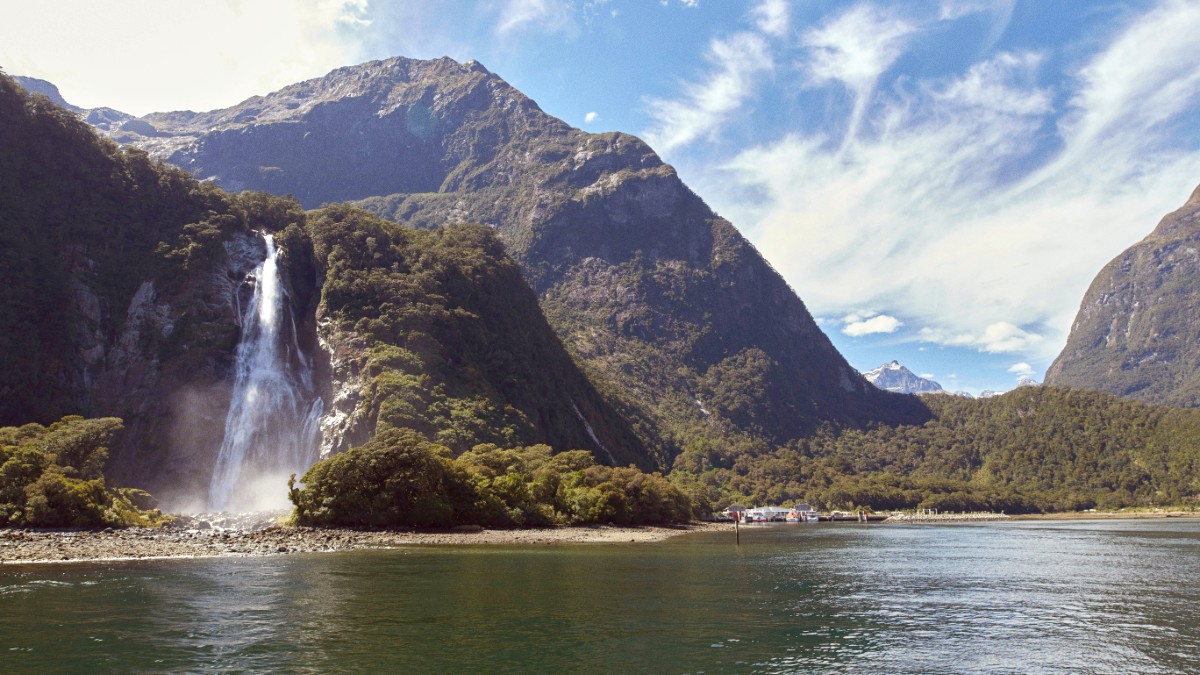
Fiordland And Southland, New Zealand
New Zealand has three main mobile network providers: Spark, Vodafone, and 2degrees. All offer prepaid SIM card options that travellers find handy. You purchase a local SIM at international airports upon arrival or at retail stores in towns like Queenstown or Te Anau. Your passport is needed for registration.
Wi-Fi is widely available in Te Anau and Queenstown at hotels, hostels, cafes, and restaurants, often free for customers. Consider an Airalo eSIM for flexible data or a Solis portable Wi-Fi device for continuous access.
English stands as the predominant spoken language in New Zealand and is widely understood throughout the country. Māori, also an official language, sees resurgence, with Māori place names and phrases increasingly in use. For English speakers, no language barrier arises. Consider Rosetta Stone for deeper language learning.
A post office is found in Te Anau for sending postcards or parcels. Milford Sound itself lacks a post office, so plan accordingly for any mailing needs.
Given limited mobile coverage in remote areas, planning your communication ahead of time brings peace of mind.
Shops generally open from around 9:00 AM to 5:00 PM or 6:00 PM. Supermarkets often open earlier and close later (e.g., 7:00 AM to 9:00 PM).
Cafes open early for breakfast (7:00 AM) and close mid-afternoon. Restaurants typically open for dinner from around 5:30 PM or 6:00 PM until late.
The Pio Pio Restaurant & Bar at the lodge has specific operating hours for breakfast, lunch, and dinner. The lodge's shop also has limited hours.
Te Anau offers standard banking hours (e.g., 9:00 AM - 4:30 PM, Monday to Friday) with ATMs available 24/7. Milford Sound has no banks or ATMs. Have sufficient cash before leaving Te Anau.
New Zealand observes several public holidays throughout the year. On these days, many businesses may operate with reduced hours, be closed, or apply a public holiday surcharge (typically 15-20%) to cover higher staff wages.
New Zealanders generally possess a friendly and laid-back demeanor. A few simple considerations can enhance your interactions and show respect for local customs.
A simple "hello," "hi," or "kia ora" (Māori for hello) is a common and acceptable greeting. A handshake serves as the usual gesture when meeting someone new.
New Zealand culture generally leans towards casual attire. For Milford Sound, practical outdoor and waterproof clothing is standard. Formal wear is not needed for general touring.
Tipping is not customary or expected in New Zealand. Service charges appear rarely. At restaurants, wait for staff to seat you or indicate if choosing your own table is an option.
Respect for privacy holds most importance. Always ask permission before photographing Māori individuals, especially if they are engaged in cultural activities. Drone operation within Fiordland National Park calls for a permit from the Department of Conservation (DOC).
Adhering to local customs and etiquette makes for more meaningful and respectful interactions throughout your journey.
New Zealand aims for greater accessibility for travelers with disabilities, though challenges still appear, especially in remote natural environments.
Major tourist infrastructure, like airports and newer hotels, generally presents good accessibility. However, older buildings or very remote locations may present limitations.
The Milford Sound Visitor Terminal is wheelchair accessible. Many larger cruise boats operating on Milford Sound are also wheelchair accessible, often featuring ramps, accessible restrooms, and designated seating areas. Mirror Lakes' boardwalk is accessible for wheelchairs and strollers, giving an easy outdoor experience.
Some tour bus operators offering services from Te Anau or Queenstown have accessible vehicles. Inquire directly when booking to confirm availability and features that meet your needs.
Some tour operators or attractions may offer services like audio guides or printed materials for visually impaired visitors. For hearing-impaired travelers, clear communication and written information prove handy.
For specific needs, directly contacting tour operators, hotels, and visitor centers presents the most effective way to confirm accessibility details.